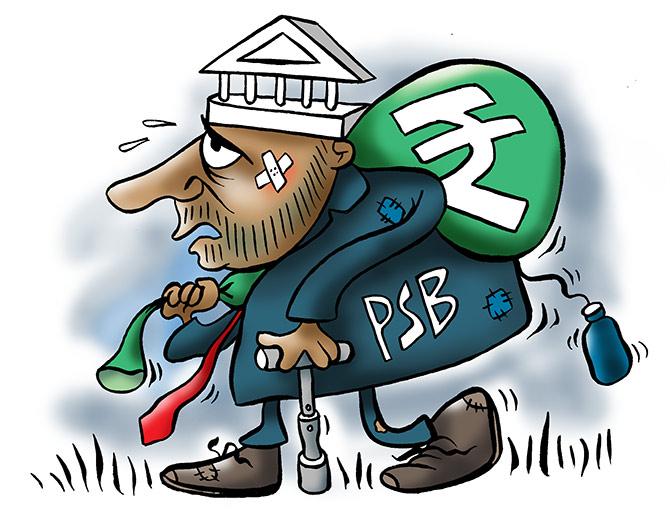The finance ministry has asked public sector banks to monitor cases where insolvency proceedings could be initiated against individuals who are guarantors of corporate debtors that have defaulted on loans.

The Insolvency and Bankruptcy Code (IBC) provides for a time-bound and market-linked resolution of stressed assets. The code also provides for initiation of insolvency proceedings against personal guarantors of corporate debtors, even though the provision has not been used much by lenders to recover dues.
In an advisory, the department of financial services has asked public sector banks to consider putting in place a mechanism for monitoring the cases which may require initiation of individual insolvency process before the National Company Law Tribunal (NCLT) against personal guarantors to corporate debtors.
"Banks may also consider setting up IT system to collate data regarding personal guarantors to corporate debtors in all such cases for the requisite follow up and consequential action," the advisory issued on August 26 said.
The rule governing initiation of insolvency process against the personal guarantor to corporate borrowers came into effect from December last year. It empowers creditors to file insolvency applications against personal guarantors to corporate debtors under the IBC.
Under the IBC, individuals are classified into three classes -- personal guarantors to corporate debtors, partnership firms and proprietorship firms, and other individuals.
There are cases when a corporate debtor takes a loan guaranteed by another corporate person (corporate guarantor to the corporate debtor) or an individual (personal guarantor to the corporate debtor). In case of a default, the lender may pursue a remedy against the guarantor or the corporate debtor.
Recently, the NCLT's Mumbai bench allowed State Bank of India (SBI) to initiate insolvency proceedings against Anil Ambani as a personal guarantor to recover Rs 1,200 crore dues from two companies promoted by him.
It was probably the first insolvency proceedings against the chief of a business who had given personal guarantee for obtaining a loan.
In 2015, Anil Ambani-promoted RCom and RITL obtained a loan of Rs 565 crore and Rs 635 crore, respectively, from SBI. For obtaining the loan from SBI's project finance strategic business unit, Ambani gave a personal guarantee that was equivalent to the total loan amount disbursed in 2016.
During 2017, both RCom and RITL defaulted on repayments. The accounts were retrospectively declared as non-performing assets by SBI with effect from August 2016 pursuant to the risk-based supervision during the year 2017.
Illustration: Uttam Ghosh/Rediff.com.